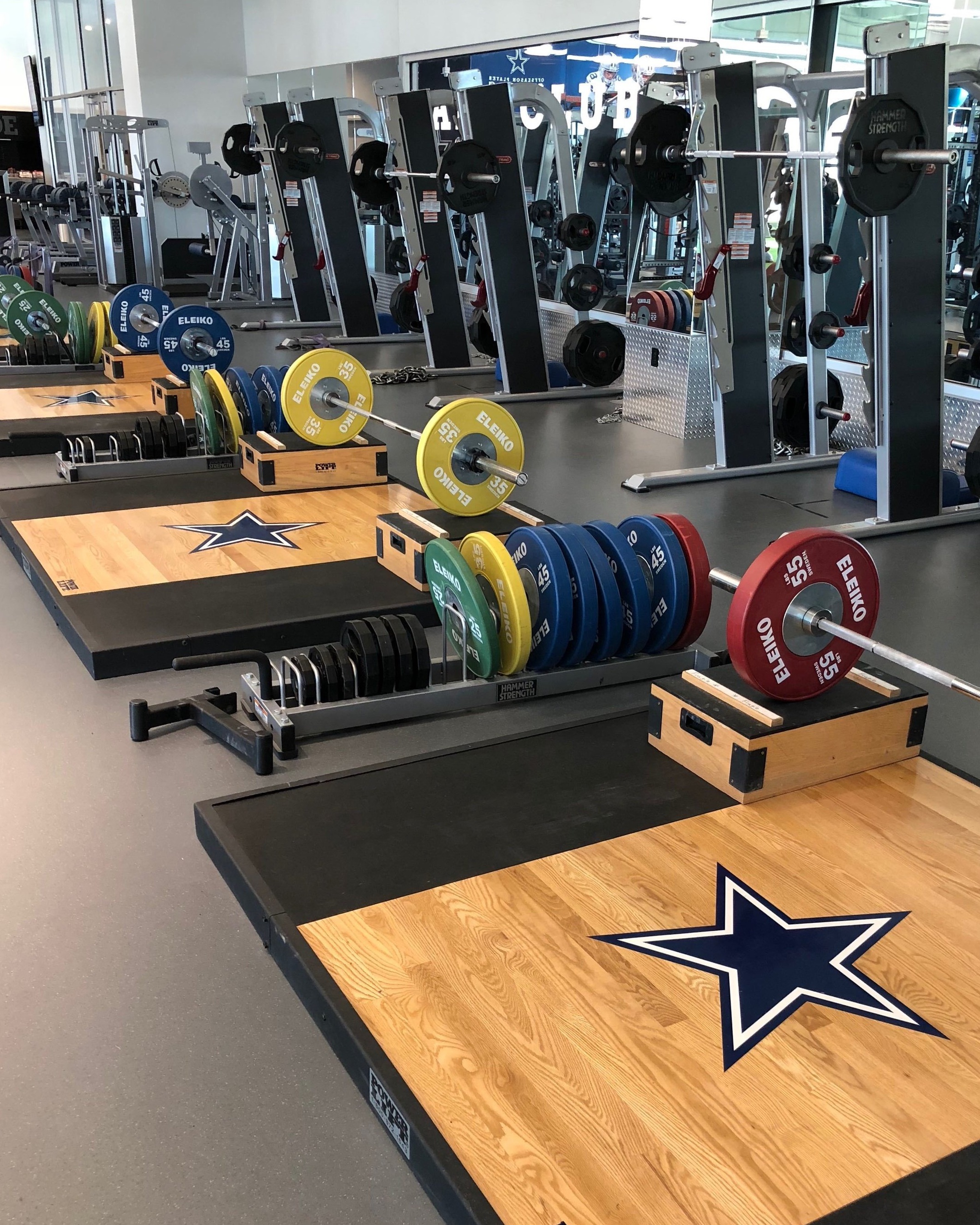Nutrition and Recovery: Tips from the Dallas Cowboys Director of Sports Performance
/Recently, I was fortunate to connect with a friend, colleague, and former student. Scott Sehnert is currently the Director of Sports Performance with “America’s Team”—the Dallas Cowboys.
Scott and I first crossed paths in 2006 on the campus of Michigan State University, where he was serving as the sports dietitian for MSU Spartan Athletics and enrolled in the master’s degree program in Kinesiology. This was his second master’s degree, his first being an MS in Nutritional Science from the University of Kentucky. Scott was a student in a few of my classes (Exercise Bioenergetics, Cardiorespiratory Exercise Physiology and Research Methods) and he also was a research assistant on the (S)Partners for Heart Health project, a school-based physical activity and nutrition program for fifth graders.
While at Michigan State, Scott was instrumental in the Spartan Nutrition and Performance Program (SNAPP). From there, he went onto Auburn University for seven years before taking the position with the NFL Cowboys. Here’s what legendary director of player personnel Gil Brandt had to say about hiring Scott:
Wow! Quite a compliment and shows the value of good nutrition for sports performance.
Besides these “on-field” duties, Scott is also a leader and ambassador in the sports nutrition profession, being very active with the Collegiate & Professional Sports Dietitians Association @CPSDA and our partner, Gatorade.
So now that you know a little bit about our guest, let’s pick his brain about nutrition and recovery for the high school athlete…
Dr. Eisenmann: The key mattra for nutrition at SNAPP was always “Eating the right types of foods in the right amounts at the right time.” Do you think there’s a better phrase or is this a good summary statement?
Sehnert: Yeah, I think this still is a very good summary about the key sport nutrition underpinnings. However, in terms of timing there is not that tight 15- to 30-minute window post-training where if you miss it, you lose it. What’s really important is not just two meals but quality protein every three to four hours, and a general pattern of eating every three to four hours. Obviously, starting with a good breakfast and snacking will help them prepare for training.
Dr. Eisenmann: What are three easy wins for high school athletes when it comes to fueling properly?
Sehnert:
Only food—no supplements!
Stay hydrated—with water, juice, and milk, not sodas or energy drinks.
Carbs throughout day—they will fuel the high-intensity, intermittent bouts of activity and training seen in most team sports and strength and conditioning.
Dr. Eisenmann: And how can high school coaches help athletes achieve these key nutritional practices?
Sehnert: Coaches can provide a great voice with constant reminders. They can also check to ensure athletes have their hydration bottle and/or shaker bottle with pre-workout and post-workout fuel and recovery shakes.
They can ask “What did you have for breakfast?” and/or “What’s for dinner tonight?” They can also remind about a pre-practice or workout snack like a banana or PB&J sandwich.
And again, I recommend coaches not only check on hydration bottles but also post urine color charts (or pee chart) in the locker room bathroom to help athletes assess their hydration.
Dr. Eisenmann: And what about parents—how can parents of high school athletes help with these habits, since they still have some control and influence over dietary habits?
Sehnert: Although sleep is really important, parents can wake up young athletes 15 minutes early so they can eat breakfast—whether that be a bowl of oatmeal and eggs, or something else.
Parents can prioritize dinner; however, this is difficult and challenging given today’s busy schedules. Time for meal prep can be challenging, so perhaps using a slow cooker can help make dinner easier.
And, sitting down for dinner actually goes beyond sports nutrition as it creates great family time!
Despite contemporary fad diets, especially those that are anti-carb, parent should not push them on young athletes. Again, carbs fuel training!
The Volt Team with scott sehnert at the cowboys’ training facility
Dr. Eisenmann: Last question. Obviously nutrition is key to recovery and adaptation to strength and conditioning. What other things—nutritional or other—are important for optimal recovery?
Sehnert: Sleep, sleep, sleep! The research is clear that not getting enough sleep is not good for recovery—mentally or physically. And yes, young athletes will get stronger if they strength train on sub-optimal sleep, but it certainly is not what it could be. At a minimum, athletes should get eight hours of sleep per night.
Many will not want to hear this one, but actually taking an off day is important for recovery. Athletes and coaches feel like they will get behind if they take a day off; however, athletes will bounce back more refreshed, energetic, and productive following an off day.
You can follow Scott on Twitter @ScottSehnert and Go Cowboys!
And don’t forget to check out all the great nutrition, hydration and recovery resources from Gatorade in the Volt app. It’s like having a sports nutritionist in your hand.
Join over 1 million coaches and athletes using Volt's AI-powered training system. For more information, click here.
Learn more about Dr. Eisenmann | @Joe_Eisenmann





